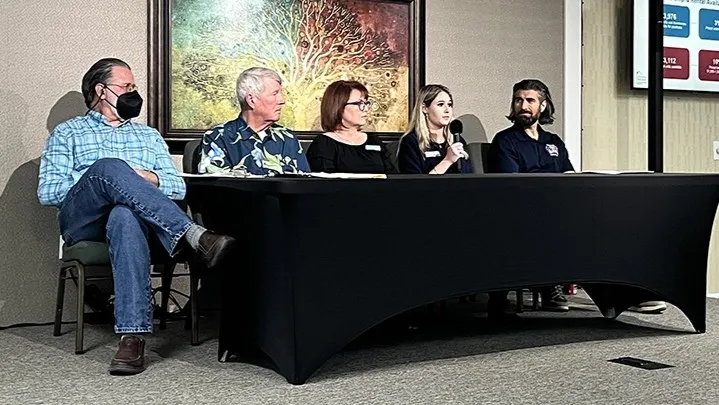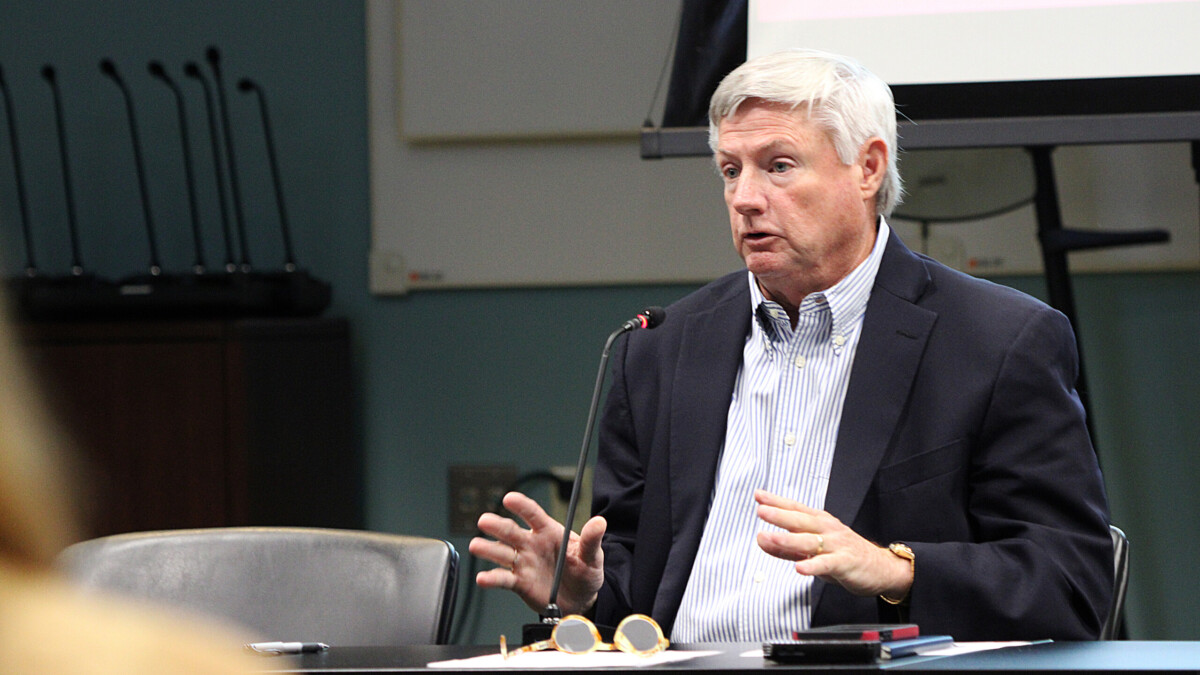Advocates and leaders in the affordable housing arena say St. Johns County’s housing market has priced out too many people and needs a serious change.
Representatives from nonprofit organizations, builders and the local chamber of commerce discussed the challenges during a recent event organized by Indivisible SJC, Habitat for Humanity of St. Johns County and the St. Johns County Chamber of Commerce.
According to data from the chamber of commerce, roughly 20% of all households in St. Johns County are considered “cost-burdened,” meaning at least 30% of the income flowing in is turned right back around to pay for rent, mortgage or other housing expenses.
The reasons for that are numerous, experts said.
Aliyah Meyer, the chamber’s economic development director, noted that the median home price has grown rapidly in recent years, with recent statistics putting it at $552,500.
With largely stagnant wages, Habitat President Malinda Everson said, many people, especially young people, are being priced out of the area.
More affordable housing would benefit everyone, said Bill Lazar, head of the St. Johns Housing Partnership.
A frequent refrain when more-affordable housing projects are pitched to the St. Johns County Commission is that the roads are already too stressed. But the more workers commute to St. Johns from neighboring counties, the more packed the roads are going to be, Lazar said.
Answers for affordable housing
What can be done? Leaders like Lazar, Everson and others offered some suggestions.
Lazar, whose organization fixes up and builds homes for lower-income individuals and families, said people have to embrace affordable housing not just in the abstract, but when proposals are made near them.
“Everyone says, ‘I don’t want it in my neighborhood,’” he said, “I don’t even know what that means anymore.”
Bob Porter, a senior vice president with homebuilder D.R. Horton, agreed.
“Everybody’s gotta be in it together,” he said.
Porter said the county’s incentives for developers to build workforce housing — housing aimed at people making $80,000 to $120,000 annually — are effective, but he believes St. Johns County’s zoning rules discourage density.
“We’ve been so stuck in this single-family mindset,” he said.
Breaking out of that mindset will take creativity, Meyer said.
Others suggested ideas like incentivizing more densely packed neighborhoods and the construction of more accessory dwelling units, like mother-in-law suites or garage apartments. Those are the kinds of projects that make homebuilders more money and give the housing stock a boost, Lazar said.
Seeing ‘past our four walls’
All of the panel’s members acknowledged that some solutions will take time to roll out. Time is of the essence, panelists said, but solutions aren’t always quick.
“From the time you sign a purchasing agreement until the time you’re ready to build a house,” Everson said, “it’s about three years.”
Everson is familiar with the challenges of building housing, and her organization is in the process of stepping up their local efforts, too.
Last month, Habitat for Humanity of St. Johns County announced it had purchased 32 acres with a goal of building more than 70 homes that will all be priced under $300,000.
If it comes to fruition, Everson said, it will be the largest undertaking the local Habitat for Humanity organization has ever planned.
There was some disagreement among panelists about exactly what policies would best boost affordable and workforce housing in the area, but the group landed on a common theme: urging community members who feel strongly about housing affordability to get involved and to let their elected officials know how they feel.
Erick Saks leads Operation Lifeline, a nonprofit organization that works to get veterans into stable housing.
Saks, a veteran himself, said he was surprised by how difficult it could be to find housing when he came to the area after more than 20 years in the U.S. Air Force. Since he started his organization in 2022, Saks said, he has seen people living in very poor and unsafe living conditions.
To ensure people have access to safe, affordable housing, Saks said everyone could use a little more compassion.
“All of us need to see past our four walls,” he said. “If you’re not willing to help, stay out of the way.”







